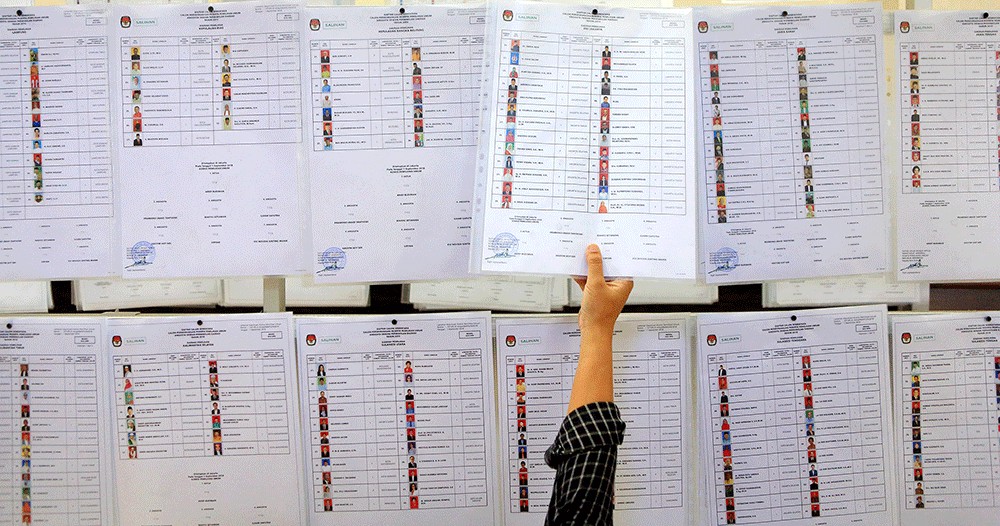Popular Reads
Top Results
Can't find what you're looking for?
View all search resultsPopular Reads
Top Results
Can't find what you're looking for?
View all search resultsCOVID-19: House, watchdog call for delay of regional elections
Change text size
Gift Premium Articles
to Anyone
T
Deputy House Speaker Sufmi Dasco Ahmad said on Monday that the KPU, the Elections Supervisory Agency (Bawaslu), the Office of the Coordinating Political, Legal and Security Affairs Minister as well as the Home Ministry should discuss with stakeholders the possibility to delay the elections or to decide an alternative polling day.
“Perhaps the election can be postponed or the schedule can be maintained but only certain mechanisms applied to avoid spreading the coronavirus," Sufmi told journalists on Monday.
The 2020 simultaneous regional elections, scheduled for Sept. 23, are aimed at electing 270 regional leaders: nine governors
The campaign period, which would normally involve candidates meeting and interacting with many people, is slated to start on July 11 and end on Sept. 19.
Sufmi said the KPU should come up with alternatives to conventional methods of political campaigning – which typically involve large public rallies and thereby would heighten the risk of communicating the virus widely -- such as campaigning through social media platforms.
"Ideas and programs can be explained through mass media or other platforms that do not require face-to-face meetings. In this digital age, campaign activities without involving crowds are very possible," he said.
Election watchdog the Association for Elections and Democracy (Perludem) director Titi Anggraini said that, although the voting day was still a way off, some stages involving intensive interactions between officials and voters were currently taking place, including voter data updating, candidate verification as well as voting committee (PPS) recruitment and training.
"It's better to delay several stages of the regional elections, which indeed can affect the voting day schedule, rather than ending up with a mess," she said.
Titi went on to say that the KPU should not underestimate the pandemic as other countries had also decided or had weighed to postpone elections due to coronavirus outbreak, such as the United Kingdom, which had postponed its local and mayoral elections from May to next year to mitigate the virus impact.
"Elections for humans, not humans for elections. [It's] humans first," she said, adding that the KPU should immediately coordinate with the House, the government and other relevant parties to prepare a comprehensive risk management response.
Article 120 of the 2015 law on regional elections stipulates that elections can be postponed in the event of disruptions, including national disasters, that would affect the process.
“The law allows the KPU to decide the matter, and I don't think it will have any impact on the legitimacy of the elections. We should not take any risks,” she said.
As of Sunday, Indonesia has confirmed 117 COVID-19 cases across the country, including in the provinces of Jakarta, Yogyakarta, West Java, Central Java, Banten, Bali, North Sulawesi and West Kalimantan.
Five people have died from the disease and eight have recovered, according to government data.
KPU commissioner Viryan Azis vowed to consider a postponement of the regional elections but added that no decision had been made to date.
"One of the options we are considering is to delay the stages of the elections or to delay voting day itself,” Viryan said on Monday.










